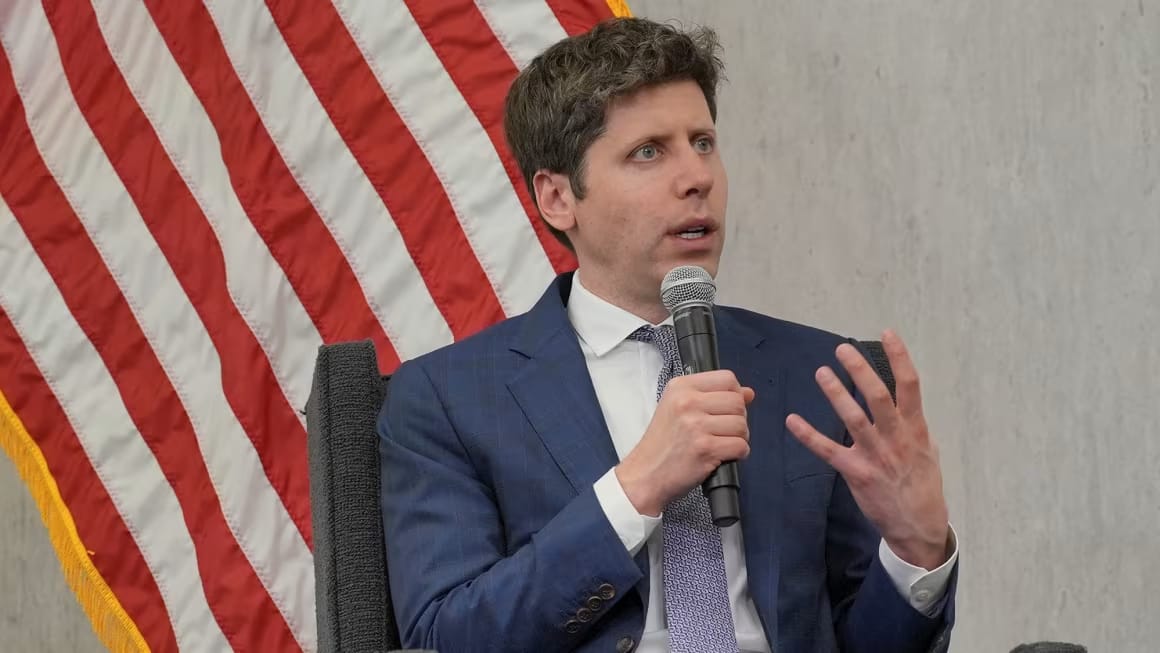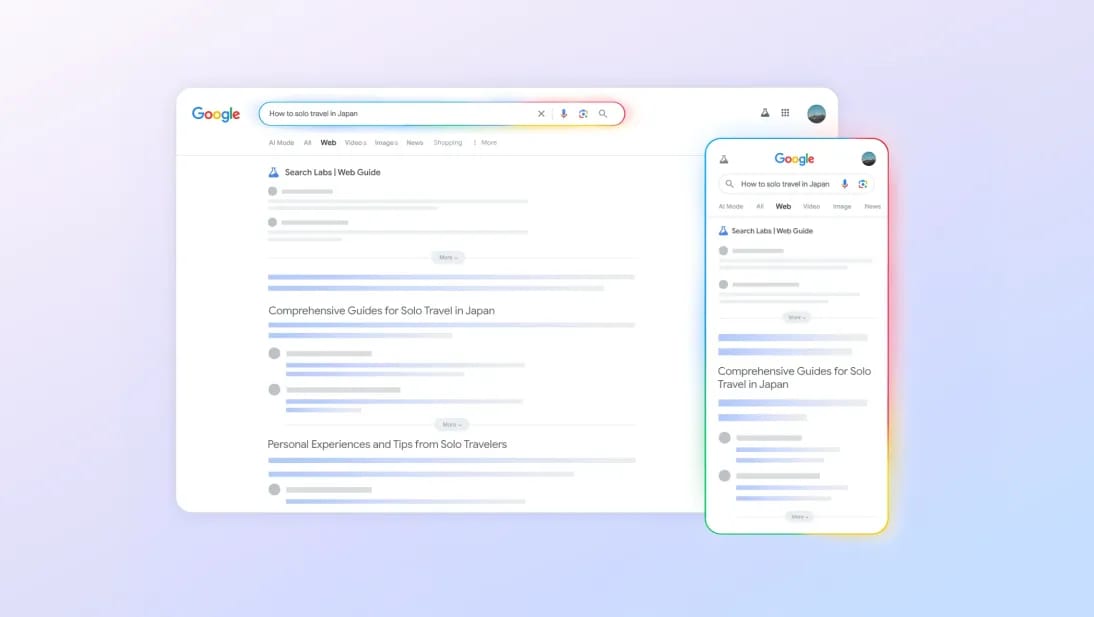- TheDownload.AI
- Posts
- 73rd Edition Download
73rd Edition Download
Trump pushes to block AI chip exports to China, OpenAI reels from a fraud scandal tied to Sam Altman, and Google tests a radical new AI-driven search experience.
Welcome!
Hey there, I’m Aidan Cramer, welcome to The Download.
If you’re new here (and a lot of you are, so welcome aboard), let me give you a quick look at who I am, why I started this newsletter, and what you can expect from it every week.
I’m the CEO and founder of AIApply, a platform built to help job seekers and professionals use AI to supercharge their careers, whether that means landing interviews faster, optimizing resumes, or building a smarter job search strategy. But before AIApply and before The Download, I was just like a lot of you, trying to keep up with the rapid-fire changes in tech and realizing that most of the information out there was either too noisy or too shallow to actually be useful.
That’s why I created The Download: to cut through the noise, focus on the signal, and help you stay ahead of the AI curve without spending five hours scrolling Twitter, Reddit, or tech blogs.
What The Download Is All About
The Download isn’t just another AI newsletter. Every Tuesday and Friday, I bring you the most important stories shaping AI, tech, and the future of work, but with context. Anyone can tell you what’s happening. I want to tell you why it matters and what you should do with that knowledge.
We break down each newsletter into 3 key topics, whether that’s a major product launch, a breakthrough in AI research, a corporate shakeup, or a shift that could impact your job or business.
For every story, I give you two things:
A TL;DR (because your time is valuable).
An “Our Take” section where I add my perspective, predictions, or advice—sometimes controversial, but always honest.
The goal is simple: keep you in the know and help you think smarter about what AI means for your future.
Why I’m Obsessed with AI and Careers
AI isn’t just reshaping industries, it’s reshaping the very idea of a career. Ten years ago, the skills that got you a great job might not even matter in five years. The question isn’t “Will AI replace my job?” The better question is “How can I use AI to stay valuable, adapt faster, and even create opportunities that didn’t exist before?”
That’s the mindset I bring to both AIApply and The Download.
For example, we’ve seen AI tools that can write code, generate videos, design interfaces, and automate entire workflows, things that would’ve taken teams of experts just a few years ago. But the winners in this shift aren’t just the companies building the tech. They’re the people learning how to leverage it in their own work, whether that’s automating repetitive tasks, using AI to brainstorm ideas, or turning AI tools into a co-pilot for their careers.
This newsletter is here to help you see those opportunities before they go mainstream.
For the New Readers
If this is your first time opening The Download, here’s what you can expect:
Sharp, opinionated takes on the week’s biggest AI news.
Actionable insights, not just headlines.
No fluff, no hype. We’ll tell you what’s worth your time and what isn’t.
You’ll also occasionally hear from me directly with career advice and strategies for using AI to get ahead. It might be a small tip or a big strategy, but nonetheless useful.
To those of you who’ve been here for months, I can’t thank you enough. The fact that thousands of you open this newsletter twice a week means the world to me. It also means we’re building a community of people who don’t just want to know about the future, they want to shape it.
If you’ve just joined, I’d love for you to hit “reply” and tell me who you are and what you want to learn about AI or careers. It helps me make sure The Download is as useful as possible for you.
Thanks for reading, and welcome to the family.
This Week in AI:
No jargon, no filler—just the biggest AI developments worth knowing right now. Perfect for quick industry insights, so you can skip the buzzwords and get straight to the good stuff. Let’s dive into this week’s AI shake-ups, just as promised:
Trump’s AI Action Plan proposes blocking advanced chip exports to China, a move that could shake global tech supply chains. Meanwhile, OpenAI is facing a growing fraud crisis connected to Sam Altman, raising questions about transparency inside one of the most powerful AI firms. And Google? It’s testing a new AI-organized search experiment that changes how we find information online.
Let’s get into it.
In This Issue:
TL;DR:
Trump’s new AI Action Plan aims to halt the export of advanced U.S. made AI chips to China in a bid to maintain technological dominance. While the proposal has made headlines, it’s short on specifics: no clear timeline, no enforcement mechanisms, and no clarity on exemptions for U.S. companies.
Our Take:
The U.S. is drawing harder lines between domestic AI development and China’s growing AI ambitions. But without clear implementation details, this is still rhetoric more than reality. For startups and chipmakers, the uncertainty could mean stalled partnerships or rushed workarounds—either way, the global AI race just got messier.
TL;DR:
OpenAI is in crisis as reports surface of potential fraud tied to Sam Altman, with accusations ranging from financial mismanagement to questionable accounting practices. While OpenAI has not issued a detailed response, the scandal is already fueling debates over the company’s rapid scaling, opaque governance, and alignment with its nonprofit mission.
Our Take:
This is the first serious reputational hit for OpenAI, and it comes at a moment when trust in AI firms is already fragile. If the allegations prove true, the fallout could be brutal, from stricter regulation to investor skepticism. For the AI community, this is a reminder that transparency isn’t just nice PR; it’s survival.
TL;DR:
Google is experimenting with “Web Guide,” a search feature that uses AI to group and summarize results into clean, AI-generated overviews. Instead of a wall of links, users get topic clusters, quick summaries, and recommended deep dives.
Our Take:
This is a direct response to AI-first search engines like Perplexity. Google’s move signals the start of a post-link internet, where the goal isn’t just ranking but contextual understanding. If this experiment sticks, SEO as we know it will need a total rethink, and fast.
🚀 Thank you for reading The Download
Your trusted source for the latest AI developments to keep you in the loop, but never overwhelmed. 🙂
*For sponsorship opportunities, email [email protected]



Reply